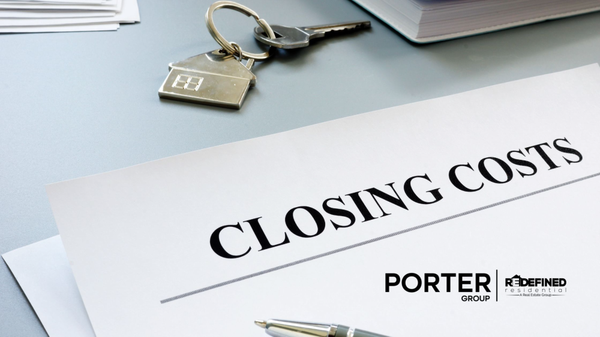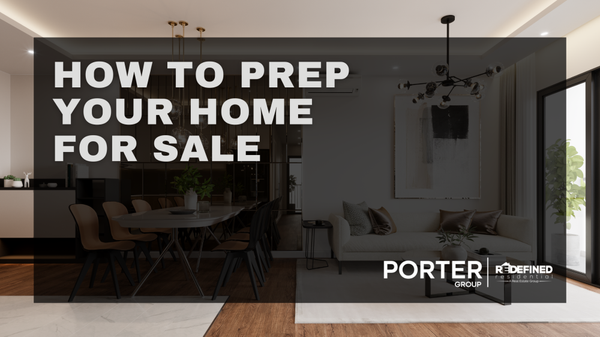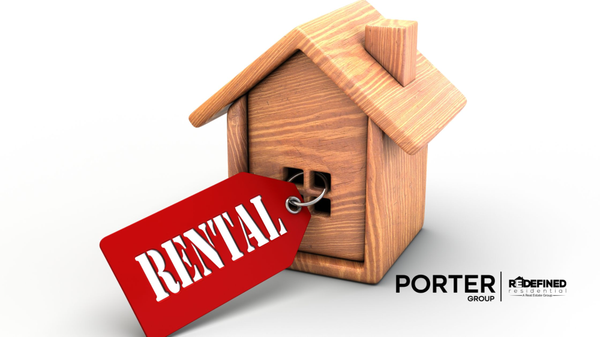
The Ultimate Guide to Understanding Closing Costs in Real Estate
It's crucial to plan ahead before buying a home. While the majority of buyers think about how much money they will need to set aside for a down payment, many are surprised by the closing charges they must pay. You need to know what closing expenses are and how much you should budget for them so that you aren't caught off guard when it 's time to close on your home. What is a Closing Cost? Closing costs are fees and expenses that homebuyers pay in addition to the purchase price of a property. These costs can include a variety of fees, such as appraisal, title search, loan origination, and attorney fees, among others. Closing costs are an important consideration for homebuyers, as they can significantly impact the total cost of a home purchase. In this article, we will provide a comprehensive guide to closing costs, including the types of fees that homebuyers can expect to pay, how much they can expect to spend, and tips for reducing closing costs. Types of Closing Costs There are several types of closing costs that homebuyers may encounter, including: 🧾 Government recording costs🧾 Appraisal fees🧾 Credit report fees🧾 Lender origination fees🧾 Title services🧾 Tax service fees🧾 Survey fees🧾 Attorney fees🧾 Underwriting Fees How Much Will You Need To Budget for Closing Costs? Understanding what closing costs include is important, but knowing what you’ll need to budget to cover them is critical, too. According to the Freddie Mac article mentioned above, the costs to close are typically between 2% and 5% of the total purchase price of your home. With that in mind, here’s how you can get an idea of what you’ll need to cover your closing costs. Let’s say you find a home you want to purchase for the median price of $366,900. Based on the 2-5% Freddie Mac estimate, your closing fees could be between roughly $7,500 and $18,500. Keep in mind, if you’re in the market for a home above or below this price range, your closing costs will be higher or lower. What’s the Best Way To Make Sure You’re Prepared at Closing Time? Freddie Mac provides great advice for homebuyers: “As you start your homebuying journey, take the time to get a sense of all costs involved – from your down payment to closing costs.” Work with a the Porter Group to understand exactly how much you’ll need to budget for closing costs. We can help connect with a lender, and together we can answer any questions you might have. Planning ahead for the costs and payments you'll have to make at closing is crucial. Let's talk so I can give you the confidence you need to get through the procedure. Schedule a Zoom Meeting with Steve!📅 Want to stay updated? Join our VIP Email List!

Why Pricing Your House Appropriately Matters
Last year, the housing market slowed down in response to higher mortgage rates, and that had an impact on home prices. If you’re thinking of selling your house soon, that means you’ll want to adjust your expectations accordingly. In a more moderate market, how you price your house will make a big difference to not only your bottom line, but to how quickly your house could sell. And the reality is, homes priced right are still selling in today’s market. Especially today, your asking price sends a message to potential buyers. If it’s priced too low, you may leave money on the table or discourage buyers who may see a lower-than-expected price tag and wonder if that means something is wrong with the home. If it’s priced too high, you run the risk of deterring buyers. When that happens, you may have to lower the price to try to reignite interest in your house when it sits on the market for a while. But be aware that a price drop can be seen as a red flag by some buyers who will wonder what that means about the home. To avoid either headache, price it right from the start. The Porter Group knows how to determine that ideal asking price. They balance the value of homes in your neighborhood, current market trends, buyer demand, the condition of your house, and more to find the right price. This helps lead to stronger offers and a greater likelihood your house will sell quickly. The visual below helps summarize the impact your asking price can have: Homes that are priced at current market value are still selling. To make sure you price your house appropriately, maximize your sales potential, and minimize your hassle, let’s connect. Schedule a Zoom Meeting with Steve!📅 Want to stay updated? Join our VIP Email List!

The Difference Between Home Warranty & Home Insurance
It's crucial to conduct comprehensive study on every aspect of the home-buying process before making an offer on a new house. You'll need to be aware of the best ways to safeguard your investment and yourself in case something goes wrong. Check out the information on home insurance versus home warranty below to educate yourself on your options. Home Insurance Homeowners insurance pays for any accidental damages and loss that are caused by fire, lightning strikes, windstorms, and hail, however, damage from earthquakes and floods is typically not covered. It also covers the replacement of personal property in case of theft or damage and liability if a person were to get injured in your home or on your property. According to American Home Shield, the average annual cost of a homeowner's insurance policy ranges between $300 and $1,000, and the bank usually asks you to obtain a policy before the mortgage is issued. Make sure to keep in mind that each type of coverage in the policy is subject to a limit and, in most cases, you will have to pay a deductible. Home Warranty A home warranty is designed to cover the cost of repairs and replacements of larger appliances and crucial systems in your home that may fail or break due to age and wear and tear. This includes but isn’t limited to HVAC, electrical, or plumbing components, kitchen appliances, and your washer and dryer. With a home warranty, you are required to pay premiums year-round, even if you do not use it, and it won’t cover damages if appliances were not maintained properly or if the damage is from a fire or other disaster. Schedule a Zoom Meeting with Steve!📅 Want to stay updated? Join our VIP Email List!
Categories
Recent Posts










